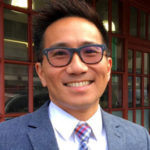Lance Toma is the visionary CEO of San Francisco Community Health Center, a multicultural health services, education, and policy organization that stands as a bedrock of support for San Francisco’s most marginalized and vulnerable communities. Lance has been a major force in ensuring that communities of color and those living with HIV/AIDS have a place to be served and heard.
Over the past nine years, Lance has transformed SF Community Health Center into a federally qualified health center and expanded its mission and reach to serve as a critical primary care safety net for thousands. Regarded as a collaborative and fearless leader, Lance also serves as Vice Chair of the Board of Directors of the National Minority AIDS Council and Co-Chair of the San Francisco HIV/AIDS Providers Network. Previously, he served on the National LGBT Youth Suicide Prevention Task Force and on the board of the National Youth Advocacy Coalition.
SF Community Health Center believes that everyone deserves to be healthy and to have access to the highest quality health care. “What I love about my job is that every day I see the results of our efforts,” Lance says. “From our morning drop-in center for HIV-positive residents of the Tenderloin to our afternoon transgender drop-in program, all of our clients—most of whom are people of color—are united by common threads of homelessness, substance abuse, mental illness, and being ostracized in our society 24/7. The space we provide is, for the majority of our clients, the only safe space where they are shown authentic respect, dignity, and affirmation.”
Looking ahead, he says, “I see that my organization has so much to offer and that I have even more passion to give. It excites me to think that I could lead SF Community Health Center for 20+ years.”
Lance’s plans for sabbatical include taking a month-long Japanese language course in Japan. “Part of my commitment to this work goes back to my grandparents, who traveled from Okinawa to Hawaii to work in the sugar cane fields to make a better future for their family,” he says. “Making the future better—not just for my biological family, but also for my chosen family and community—is very important to me. Learning Japanese is another way for me to deepen my connection to my ancestors, take care of myself and grow.”
